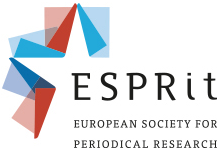Seminar: Taking the Magazine out of the Metropolis
We are inviting you to an online seminar on Friday, 12 January 2024, at 12.30pm CET. The seminar will feature the following papers:
Dr Andrew Hobbs (University of Central Lancashire, UK): “Regional Magazines: A research Agenda”
What happens to our idea of the magazine when we take it out of the city and into the provinces? This paper raises some research questions about magazines focused not on the international, the national or the local, but on those administrative units in between: county, province, region, oblast, canton, département, voivodeship, federal state, Bundesland, etc. Are such markets too small? Is the academic market for a study of regional magazines too small? – are there too few to be worth studying? In fact, how many are there? If magazines are modern, can the modern happen outside the city? Is the regional always middlebrow? Can a magazine be radical whilst regional? If Raymond Williams was right in seeing ‘regional’ and ‘provincial’ as value-laden metropolitan ideological constructions, what does that mean for the regional magazine? How does magazine publishing relate to these sub-national administrative territories? Do such territories have an imaginary, a distinctive culture, or are they purely administrative? This paper considers some of these questions with a case study of the twentieth-century English county magazine as a genre, analysing its techniques for exploiting county identity.
Dr Andrew Hobbs is a senior lecturer in journalism at the University of Central Lancashire, UK, a fellow of the Royal Historical Society and a former journalist. He is interested in provincial print cultures and sense of place, particularly nineteenth-century local newspapers and twentieth-century county magazines. His open-access book A Fleet Street in Every Town: The Provincial Press in England, 1855-1900 (Open Book, 2018) won the Research Society for Victorian Periodicals 2019 Colby book prize. His work on provincial magazines includes ‘Lancashire Life Magazine, 1947–73: A Middle-Class Sense of Place’, Twentieth Century British History 24:3 (2013) and ‘Cheshire Life, 1934-39: The Birth of the Modern County Magazine’, Manchester Region History Review 2 (new series, 2023).
Dr Fabio Guidali (Università degli Studi di Milano, Italy): “When Politics Meddles in: Local Identities in the Case of Northern League’s Weekly Sole delle Alpi”
The Lega Nord (Northern League, today Lega) is currently the Italian political party with the longest history, having emerged as one of the many independence movements that established themselves globally in the last two decades of the twentieth century. Attentive to Northern Italian localisms as opposed to the central bureaucracy of the state and its supposed “southern” character, in the late 1990s the Northern League became an amplifier of the crisis that the parties had been experiencing for years and contributed to the weakening of the political system. In the second half of the decade, the Northern League claimed for a phantom new state called “Padania”, understood as a multi-regional community held together by a common culture and even by supposed common ethnic roots (Celtic or at any rate “barbarian” and Northern European, not “Italic”). It thus gave birth, among other editorial products, to a weekly called Sole delle Alpi (Sun of the Alps), a current affairs magazine which, in addition to politics and society, dealt also with regional customs, trying to build a pool of references to a “Po Valley” culture(“padanista”).
The paper presents this periodical, which appears interesting, though not necessarily indicative of a trend, given its political uniqueness. It highlights the lowbrow character of the publication (which sought to mimic the anti-elitist and anti-intellectual character of the party), its radical and anti-modern political approach, its lack of market success, its focus on very narrow local cultures and a plural regional identity, and, at the same time, its exploitation of the territory also for tourism purposes.
Dr Fabio Guidali is a research fellow in Contemporary History at the University of Milan. He investigates the history of intellectuals and culture in twentieth-century Europe, with particular attention to associations, networks and forms of political commitment. His research also focuses on the history of journalism and on the popular press. He is the author of two intellectual biographies (Il secolo lungo di Gabriele Mucchi. Una biografia intellettuale e politica, 2012, and Un intellettuale europeo. Umberto Campagnolo tra antifascismo e guerra fredda, 2023) and of a monograph on intellectuals’ political engagement (Scrivere con il mondo in testa. Intellettuali europei tra cultura e potere, 2016). He is local scientific coordinator of a national project on discrimination in post-war Italian newspapers (Lingua e storia della discriminazione nei giornali dell’Italia contemporanea, PRIN 2022) and member of the advisory board of ESPRit.
The seminar will be held online. Please register below if you wish to receive the Zoom link.
